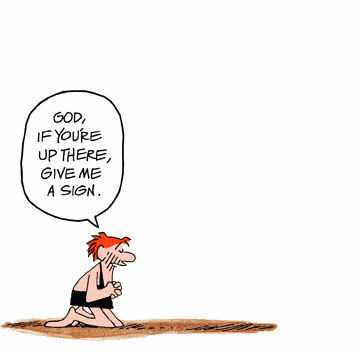The God of Wanton Excesses
 Jesus has a penchant for overdoing things. When asked about the dwindling supply of wine at the Cana wedding, he produced several jars too many. When presented with loaves of bread and fish, he made twelve basketfuls of them. When questioned about forgiveness he advised to forgive not seven times but seventy-times seven times. He was fond of telling parables wherein those who were slapped should offer the other cheek, those whose linens were taken away should offer their tunics too and those pressed for service of one mile should do so for two miles.
Jesus has a penchant for overdoing things. When asked about the dwindling supply of wine at the Cana wedding, he produced several jars too many. When presented with loaves of bread and fish, he made twelve basketfuls of them. When questioned about forgiveness he advised to forgive not seven times but seventy-times seven times. He was fond of telling parables wherein those who were slapped should offer the other cheek, those whose linens were taken away should offer their tunics too and those pressed for service of one mile should do so for two miles.Why did he do these things? As human beings we give importance to numbers, to things that can be quantified and measured. This is not our fault. Being rational people, we categorize things and experiences so we can make sense of them. The easiest way to understand them is to give approximate measure of their height, depth, length, number and so on. So for instance, when asked how rich a person is, we quote numbers. He earns six-digit figures. She drives a $50,000 car. When asked how beautiful a person is, we rattle off figures. She is five-eight tall, has C cup, 36-24-34 statistics.

We give too much premium on numbers and quite forget that there is more to life than figures from 0 to 9. In the above examples, Jesus used the very figures we are so familiar with to astound us, to shock us, to even make us disbelieve (for a moment) so we can come into a fuller realization of God's greatness. God does not deal with us as simply numbers in an equation. We can never be just one tiny, insignificant digit in the billions of people on earth.
our expectations. Blind people, the lame, those who are possessed did not just get healing. They too were forgiven. The adulteress was not simply forgiven, her dignity was restored to her. The paralytic was not simply healed, his ability to take control of his life was given back to him. Peter's betrayal was answered with three affirmative declaration of love, restoration of trust and a giving of power to do the same to others what Jesus had done to him.
And so, by way of example, Jesus imitates the Father's great love for us by exceedingetrayal was answered with three affirmative declaration of love, restoration of trust and a giving of power to do the same to others what Jesus had done to him.
Our God is a God of wanton excesses because we are loved much, much greater than we can ever imagine or ways we can count.



0 Comments:
Post a Comment
<< Home